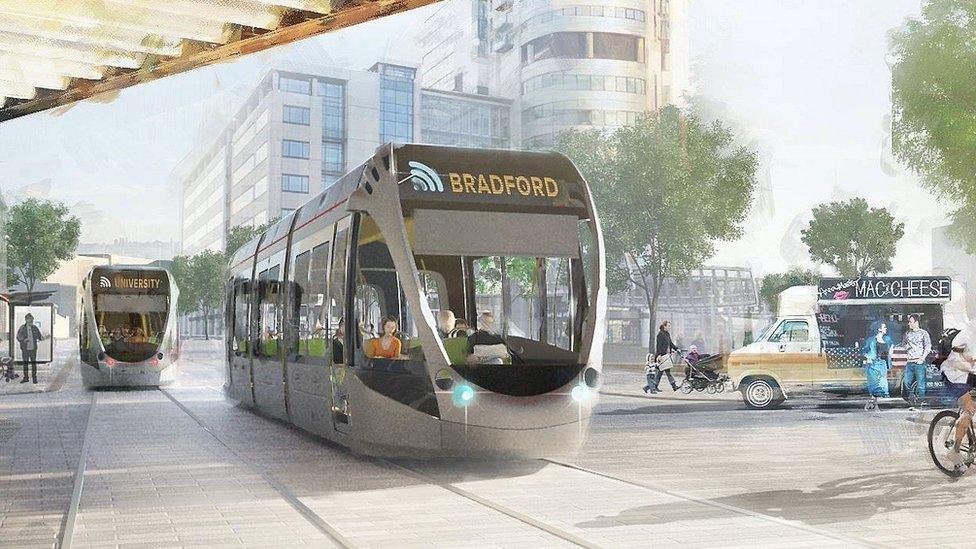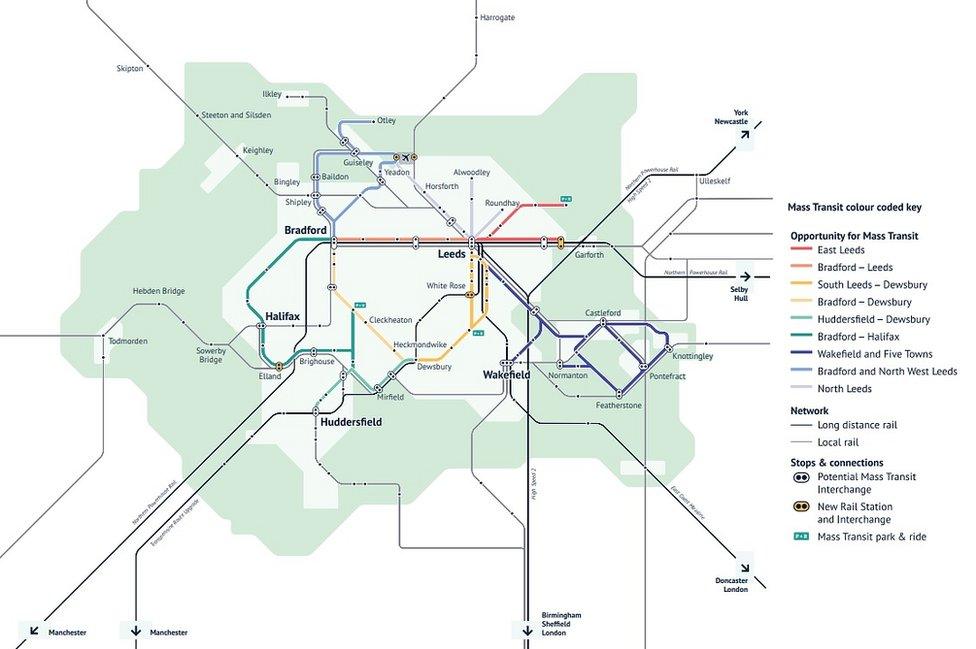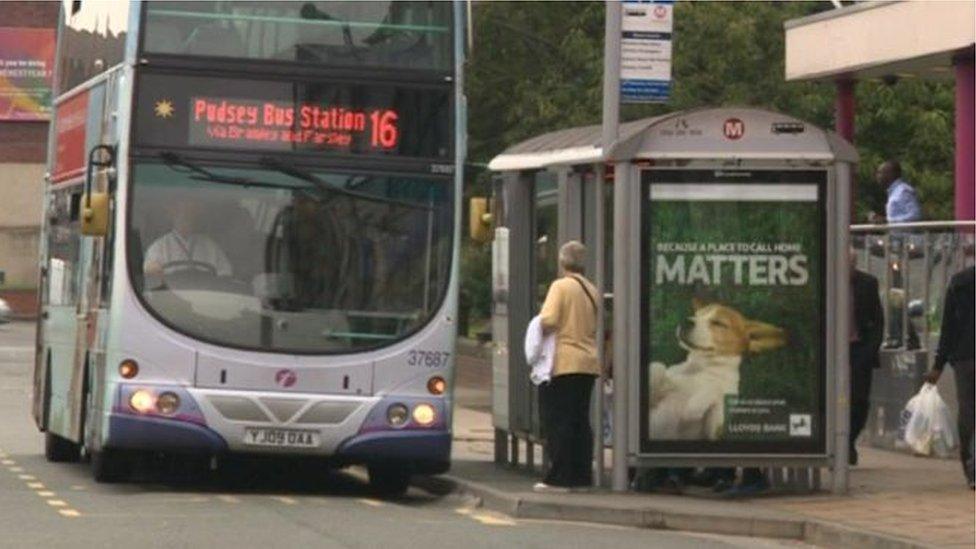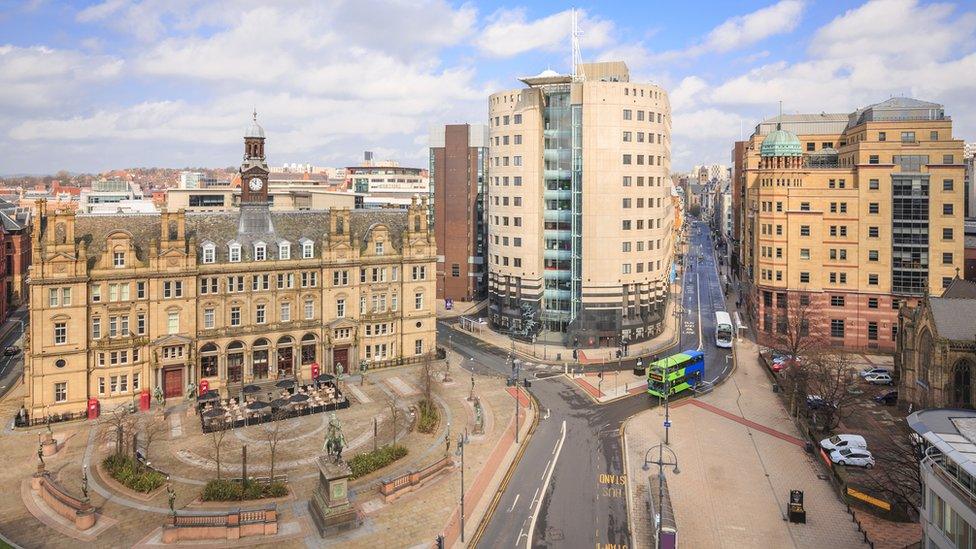West Yorkshire 'transformational' mass transit plan revealed
- Published

Several forms of mass transit were being considered in a bid to link town and cities, transport bosses said
Plans for a "transformational" multi-billion pound mass transit system for West Yorkshire have been announced.
West Yorkshire Combined Authority (WYCA) said the scheme could see nine routes built in stages across the county over 20 years.
The project will rely on securing central funds, with a business case due to be submitted to government in 2022.
Previously, Leeds was set to get a trolley bus network and a supertram but both plans were subsequently scrapped.
In a report,, external the WYCA said the options being considered are light-rail, tram-train and prioritised routes for electric buses.
An exact price tag for the scheme has not been revealed, but the WYCA said it would be bidding for a share of a £4.2bn devolved transport fund announced by Chancellor Rishi Sunak last March.

The mass transit system could cover nine key travel routes in West Yorkshire, transport bosses said
WYCA said it had studied the effectiveness of similar schemes in Birmingham and Manchester to help develop the project.
Judith Blake, Leeds City Council leader, said: "The people of West Yorkshire deserve a transport system that fills them with pride, with optimism and above all with the confidence our region has a clear direction of travel towards a future that brings prosperity for all."
Kim Groves, chair of the WYCA transport committee, said the scheme would link communities with a "quick and reliable service".
"This will represent a bold investment - a transformational transport system that will benefit many generations to come," she said.
Leeds City Council and WYCA spent nearly 30 years and invested £72m developing Leeds trolleybus and supertram projects, but both schemes failed to materialise.
While launching his bid to become Conservative party leader in June 2019, Prime Minister Boris Johnson said it was "madness that Leeds should be the largest city in Europe with no metro rail system".

Analysis
Spencer Stokes - BBC Look North transport correspondent
Go back 70 years and Leeds was sketching out plans for underground rail lines, but no tunnels were ever dug.
Fast forward to the 1980s and pollution concerns in Bradford saw the city bid to develop an electric trolley bus network.
A decade on, Leeds drew up plans for a three-line supertram scheme that would have stretched from Headingley in the north to Tingley in the south and out to Seacroft in the east.
Building work was briefly started, but was cancelled after costs ballooned beyond the initial £500m set aside for the scheme.
The government asked for Leeds to come up with a "bus-based alternative", so the electrically-powered New Generation Transport project was developed - but was also later cancelled.
This latest attempt is the boldest and most ambitious scheme yet. But it's launched at a time when public funds are depleted and travel patterns may have been permanently altered by the Covid-19 pandemic.

Follow BBC Yorkshire on Facebook, external, Twitter, external and Instagram, external. Send your story ideas to yorkslincs.news@bbc.co.uk or send video here.
- Published23 August 2019

- Published11 March 2020
